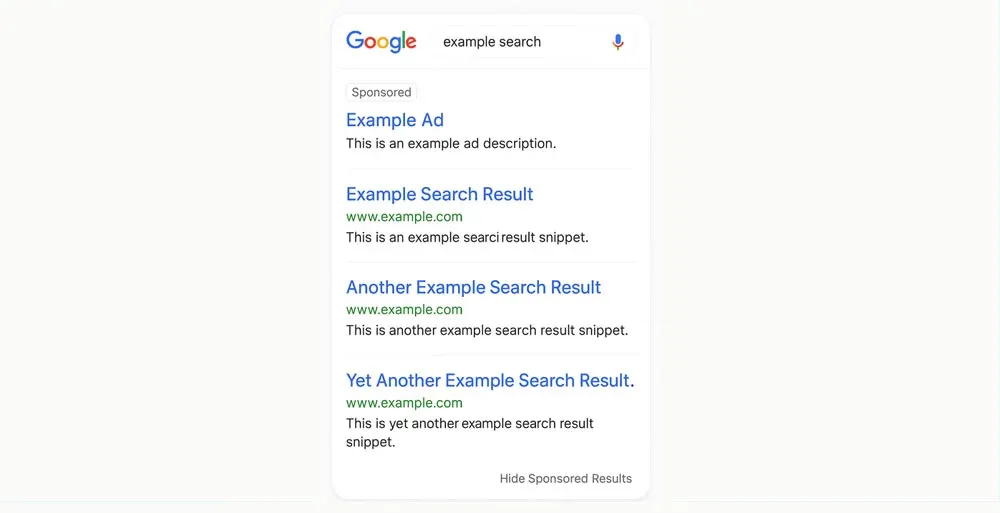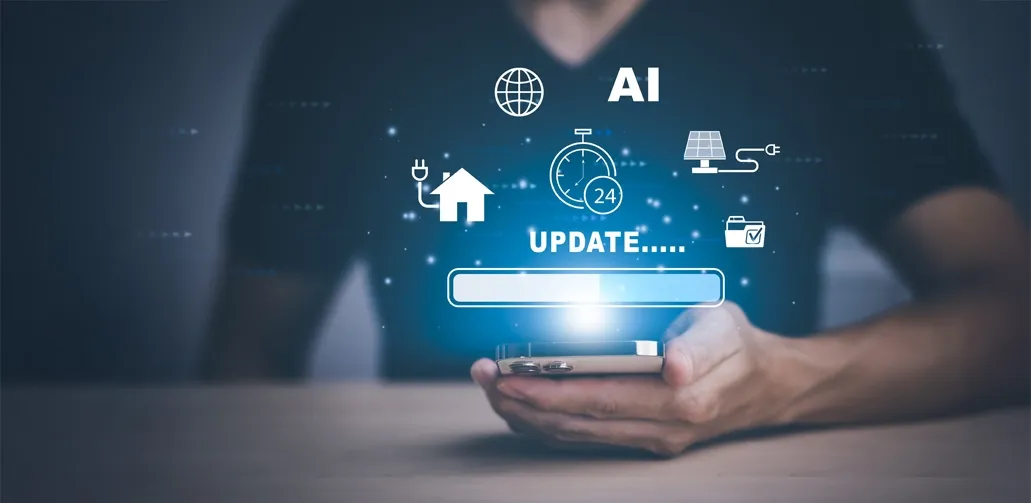
With the recent AI evolution, AEO and Digital marketing are filled with so much misinformation that even highly experienced professionals can get misunderstood. For the next few minutes, let’s focus solely on AEO updates & marketing insights to gain clear logic, fresh perspective, and renewed confidence.
Stay Ahead With The Latest AI Trends
Meta Updates – 2 October - Meta has launched Business AI, which can do three things:
- Chat with your customers based on your website’s products/services (AI chat bot),
- Create videos for your ads,
- And they’ve added a Google-like “virtual try-on” feature.
Bing Updates – 3 October: Bing has launched a new interface called “New Places for Business”, basically their version of Google My Business.
Nothing major has changed, new domain, UI tweaks, more colours, new button styles. The rest is the same. You can still import all info from Google My Business, create listings, etc. They’re calling it a “three-step” process, nothing special.
ChatGPT Apps – 6 October: You can now use apps directly inside ChatGPT. When an app is available, it loads directly inside the same chat window.
Currently available Apps:
- Booking.com, CV builder, Figma, Coursera, Expedia, Zillow, Spotify, etc.
- An SDK is also available so developers can build apps for ChatGPT.
Some people are calling this a massive new revenue stream, but let’s hold off on conclusions.
YouTube Updates – 6 & 9 October:
- Activation Partners Program: This connects advertisers and agencies with large-scale ad-buying experts. Useful only for enterprise-level spenders.
- Brand Pulse Report: Brands can now clearly see Organic views vs. paid views on promoted videos.
- Overlap reports: They can also promote organic videos from other channels if their brand is mentioned there. This should have existed earlier but is being presented as something new.
Google Ads – 10 October:
- Google Ads will now warn you if you upload low-quality images.
- Soon they’ll probably auto-upscale your low-resolution images—much like YouTube’s upcoming AI video upscaling feature.
Google Nano Banana – 13 October: Google has integrated Nano Banana inside the Google Search app. Now you can take a photo and directly modify it inside the Google app.
Example: If you want to visualize how a yellow sofa looks in your living room? Just click a photo and Google will show you instantly. It’s genuinely a useful, futuristic feature.
New Look for Sponsored Results – 13 October: Google has changed how sponsored results appear. Some aspects have changed:

- The first ad shows a clear “Sponsored” tag.
- Every ad below looks like a normal search result.
- A tiny “Hide Sponsored Results” line indicates where ads end.
- Google’s new “Sponsored results” label remains visible as you scroll, improving ad visibility.
- Sponsored listings include a “Hide sponsored results” control that lets users collapse the entire group.
- Google also states there will be “no more than four text ads” within any sponsored block.
This labelling applies to both “text ads” and “Shopping ads”, which are marked as “Sponsored products.” Instead of individually labelled ads, these units now appear as a consolidated sponsored block, making them easier to recognize—and easier to skip. (blog.google)
SEO and PPC professionals will notice the difference, but regular users won’t. Google once used strong background colours to differentiate ads. Now they’re making it harder to distinguish between ads and organic results.
Google Discover AI Summaries – 13 October: Two AI features announced:
- AI summaries inside Google Discover.
- Live updates for sports personalities directly on the search page.
The Discover change will definitely impact traffic, Google is eating away the one remaining strong traffic source for SEO professionals.
Microsoft Bing – 15 October: Bing now supports the data-no snippet tag, which prevents sensitive information (phone numbers, codes, etc.) from appearing in snippets or AI summaries. Google has supported this since 2019, so Bing is extremely late. OpenAI’s moves have eaten even Bing’s remaining traffic.
Google Ads API – 16 October:
- Google Ads has launched v2 of their API, featuring.
- Generative AI for asset creation.
- Smart bidding enhancements.
- Demand Gen campaign upgrades.
- Performance Max improvements.
- Better image extraction/enhancement.
- Expanded reporting options.
Developers can check full details in the official documentation.
Google Maps Ads – 17 October: Scrollable sitelinks are now available inside Google Maps ads, visually attractive and more interactive. Should be added to organic listings too.
Google Ends Privacy Sandbox – 17 October: Google is shutting down the Privacy Sandbox, which aimed to replace third-party cookies to improve privacy.
Reasons:
- Technology was too complex.
- Tracking still didn’t work properly.
- Users don’t care much about privacy anymore, they’re enjoying AI tools too much.
- No major success despite 3–4 years of effort.
We’ve been covering Privacy Sandbox since 2022, so long-time viewers already know this history.
Open AI Atlas Browser – 21 October: Open AI launched a new browser called Atlas.
But it’s basically:
- Chrome with ChatGPT features pasted on top.
- With a new file name.
- And its search still uses Google Search directly.
Reddit vs Perplexity – 2 October (NY Times)
- Reddit has sued Perplexity and SERP API.
- Reddit earns millions from Google for content access.
- Perplexity was using the same content for free, so Reddit took legal action, possibly with Google’s encouragement.
- Reddit claims they even set a trap by planting a fake post to prove that Perplexity was scraping and copying Reddit’s content.
Reddit doesn’t pay creators, users post for free, Google pays Reddit, Perplexity scrapes Reddit, everyone is benefitting.
Google Search Console – 27 October:
- Search Console will now show Query Groups instead of individual queries.
- Because in the AI era, users ask the same question in many different ways.
- Google breaks down queries internally through “Query Refinement”, so grouping them for reporting makes sense.
Conclusion: As the digital landscape continues to evolve, one thing becomes clear: the real winners in SEO and marketing are not those chasing trends, but those who understand the logic behind them. Tools will change, interfaces will change, and AI will keep rewriting the rules but clarity, relevance, and strategic thinking will always stay in demand. In a world overflowing with noise, misinformation, and shortcuts, professionals who remain informed, analytical, and adaptable will continue to thrive.
Keep learning, stay curious, and treat every update as an opportunity, not a threat to refine your expertise and move ahead with confidence. And as always, TIC is here to assist businesses in navigating these changes with clarity, strategy, and result-driven execution.
Some Useful Links:
#socialmediaservices #thoughtleadershipcontent #uxdesigningservices #websitedevelopmentservices #digitalmagazines #publications #casestudies #TICMumbai #abouttic #TICblogs #TICpodcasts #ourwork #ourclients #testimonials #contactus #careers #portfolio





